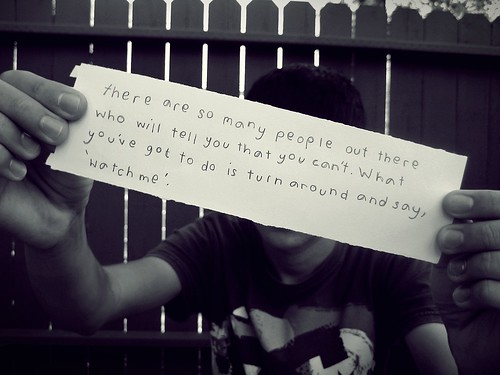Tony Campolo has an article on Making Matters Worse in Haiti, suggesting that in spite of the best of intentions and the good work that faith based groups have and are accomplishing, there might be another side we aren’t considering – that mission teams disempower the Haitians, keeping them from potential employment and fostering ongoing dependency.
Scott Couchenour offers 10 Questions to Lead from Your Strengths. Good stuff to chew on. Also this week a couple good posts at Church Marketing Sucks: Follow the Leader: More Jesus, Less Personality Pastor, focusing on avoiding the “cult of personality” that threatens to attach itself to those in pastoral leadership; and The Church as a Dream Factory or Do Factory – I’m with that author that it isn’t an either/or, at it’s very best, the church should be about dreaming God-sized dreams AND working to help build the Kingdom.
I’ve mentioned before that I’ve been fascinated by issues around church architecture; in that vein I came upon this article, which offers some important thoughts – first, the style of the building doesn’t seems to be important as condition of the facility, but also as they note, people don’t come because of the building, they come because of spiritual longing and personal invitation (an obvious point, but one that often gets forgotten). They also provide this analysis:
“The “third place” area is important. A “third place” area is a social gathering point outside of the two usual community environments, work and home. Those churches that remain at the cutting-edge realize that a third place area is growing rapidly in importance with society. Churches that provide these types of gathering areas are much better positioned to reach the unchurched people in their surrounding neighborhoods.
The gym fallacy. Many pastors hear from their members that building a gym will help attract the unchurched in their community. Our research, however, found the exact opposite to be true. In fact, one of the areas of the church that was least important to the unchurched was the gym. Church leaders that are considering building gyms need to understand that gyms, in general, serve their current membership and have little effect on attracting the unchurched.”
The “third place” stuff is interesting and something I’ve been thinking about for a while – especially how to offer a meaningful “third space” that is more than a coffee shop that serves the membership, but I’d never thought about the whole church gym issue before. It seems like that could be a third space, too, but maybe the focus around it would have to be about building relationships instead of just offering more programs.
Taylor Burton-Edwards points to the changing model of the US Postal Service which is aiming to create more decentralized points of service in the places people already are (grocery stores, pharmacies, convenience stores, etc), instead of the traditional single point of operation (the Post Office building). Taylor asks what the United Methodist Church might learn from this, especially when parallels can be drawn between the two institutions (lots of underutilized buildings in remote areas with the expectation that people “come in” instead of “going out” to serve).
I personally prefer the “marching band” version of OK Go’s This Too Shall Pass, but this one is certainly worth 4 minutes of your time as well:
Damien Kulash from OK Go also has an Op-Ed up on the New York Times about how music labels are against the very thing I’m doing here. The problem is, when I embed the video on my site, youtube doesn’t pay a royalty to the record label, but as Damien point out, if people like me don’t embed, the video doesn’t go viral, and people don’t find out about the band or the new music. I think the bottom line is if you find an artist you like on the internet, find a way to show them some love – buy the cd/mp3/etc., see them on tour, etc.
